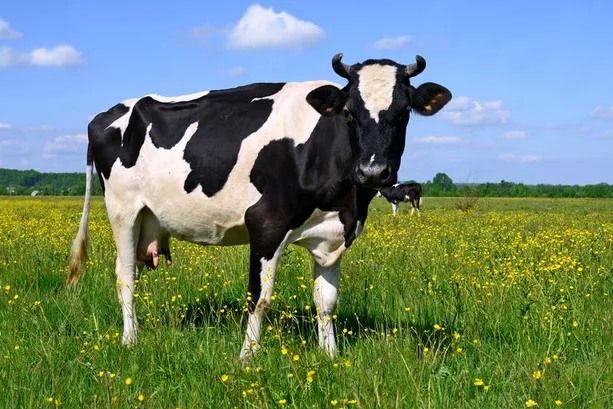
Breastfeeding
When any baby is born, the baby is totally dependent on the food that we feed them. A new born infant drinks only milk from its mother. Whether it is a human baby or any type of animal, mother's milk is the best for any baby to drink. In humans, new born babies receive all the nutrients they need to survive by just drinking breast milk. A human baby receives the nutrients it needs to grow, and it also gives the infant natural immunity. From about 6 months on wards, babies are weaned off the breast and introduced to other foods. I truly believe that if a baby is fed normal food prior to the six month period, the baby will have digestive issues later in life.
After this time period, human babies are normally exposed to cow's milk. People often believe that a baby should be given milk from a cow after breastfeeding.

Did you know that we are the only species on earth that drinks milk from other animals?
Like all mammals, human infants produce great amounts of lactase. Lactase is an enzyme that allows the body to digest lactose. Later on in life, after the age of about five years, lactase production decreases.
Lactase is an enzyme produced by many organisms. It is located in the brush border of the small intestine of humans and other mammals.
Why do humans drink cow's milk?
About 7500 years ago in Central Europe, a genetic mutation appeared. The mutation caused people to produce lactase up to adulthood. According to a 2009 study in the journal PLOS Computational Biology. (The mutation is also believed to have evolved a few other times and places over the last several thousand years.)
Another theory suggests that farmers with their families moved out of Europe with domesticated crops, that weren't suited for the environment. Due to the lack of food resources and possible contaminated water sources, these farmers turned to cow's milk for nutrition and this became part of their daily diet. They thrived on the milk because they were able to digest lactose. They also passed it on to the next generation. Others, who did not have the mutated gene, eventually died because they could not digest lactose. This is possibly where lactose intolerance started.
What is the nutritional value of milk?
Milk contains quite a few nutrients. 200 ml of milk will give you your daily needed intake of calcium, potassium, phosphorus as well as vitamins B2 and B12. Even though milk holds all these properties, and may seem healthy, milk from a cow is not healthy for human consumption.
Did you know?
- Calcium from animal milk is not absorbed into our bodies easily. It could even cause serious health problems.
- Some people suggests that milk consumption can lead to an increased risk of prostate cancer.
- A single serving of milk can contain as much as 24 mg of cholesterol.

What we also need to remember is that earlier in previous centuries, milk was unpasteurized. Nowadays all milk is pasteurized and can be considered a processed food. Most of us know that anything processed is not totally natural. If milk is not processed it is possibly healthier to drink but nowadays milking cows are given antibiotics and is injected with a genetically engineered form of bovine growth hormone. This man made hormone is used to artificially increase the production of milk. Therefore milk can be seen as unnatural.
Despite the fact that people drink milk for a natural calcium intake, recent studies have shown that milk and other dairy products can actually create osteoporosis in your bones. Because it is so difficult to absorb calcium from cow's milk (especially when pasteurized) it actually increases calcium loss from the bones which increases the risk of fractures. When milk is ingested, it increases the acidity in our blood. To neutralize the acid, our bodies pulls calcium from our blood.
Conclusion:
Just remember too much of anything is bad for you! One glass of milk will probably not kill you but it may increase your risk to diseases later in your life.
Should you wish to read more about this topic, please open the links below:
http://www.nhs.uk/news/2014/10October/Pages/Milk-linked-to-bone-fractures-and-early-death.aspx
http://www.webmd.com/food-recipes/features/milk-for-your-bones#1
https://saveourbones.com/osteoporosis-milk-myth/
Please follow me
